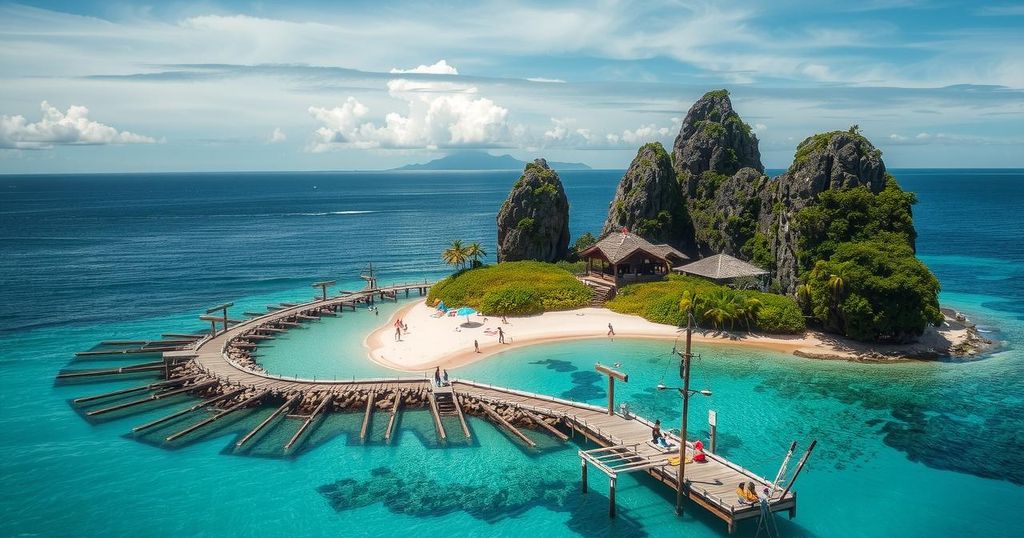RECOVER Project Enhances Climate Change Adaptation for Island Nations

The RECOVER project, funded with $1.2 million, seeks to enhance climate change adaptation in Mauritius, Maldives, and Fiji. Led by researchers from the University of Waterloo, the project will address resource vulnerabilities and develop scalable strategies to support community resilience against climate impacts. Emphasizing partnerships and nature-based solutions, RECOVER aims to improve socio-economic conditions and environmental health in these island nations.
The RECOVER project aims to bolster climate change adaptation strategies for small island nations such as Mauritius, Maldives, and Fiji. Funded with $1.2 million from the International Development Research Centre and the UK’s Foreign, Commonwealth and Development Office, this initiative is a collaboration between the University of Waterloo and institutions across the islands. Emphasizing the urgent need for solutions that address social inequities arising from climate change, the project will identify vulnerabilities and develop scalable strategies that enhance access to essential resources including food, water, energy, and healthcare.
The research not only focuses on understanding the islands’ exposure to climate effects but also on promoting nature-based solutions to ensure community resilience. Dr. Simron Singh, the project lead at Waterloo, emphasizes the importance of working with low-income communities. The RECOVER initiative envisions rich partnerships aimed at improving the socio-economic landscape, particularly for those reliant on coastal biodiversity.
To mitigate the challenges faced due to climate vulnerabilities, the RECOVER team will analyze the metabolism of island economies—how they manage resources and energy for societal well-being. By addressing issues like high import dependencies and unsustainable energy systems, the project seeks to transition these economies toward a sustainable model of resource use.
This interdisciplinary effort aligns with the broader goals of the CLARE program, which focuses on climate adaptation and resilience. The project not only represents a step towards actionable solutions but also aims to foster enduring partnerships that contribute to sustainable development across the region. With a keen focus on building capacity and facilitating knowledge transfer, the RECOVER project holds great promise for enhancing the resilience of these vulnerable island communities against climate change.
Small island nations are disproportionately affected by climate change despite contributing minuscule amounts to global greenhouse gas emissions. These communities face numerous challenges in adapting to climate impacts, which necessitate innovative solutions that address both environmental and social inequities. The RECOVER project, initiated by a consortium of researchers from the University of Waterloo and partner universities in Mauritius, Maldives, and Fiji, is designed to tackle these issues through collaborative and targeted research efforts that enhance local adaptation strategies.
The RECOVER project epitomizes a critical response to the challenges faced by small island communities in the context of climate change. By integrating innovative research with local needs, the project not only aims to improve resource access and community resilience but also addresses the socio-economic pressures experienced by vulnerable populations. This initiative represents an important step towards developing sustainable solutions that can withstand the multifaceted impacts of climate transformation.
Original Source: uwaterloo.ca






